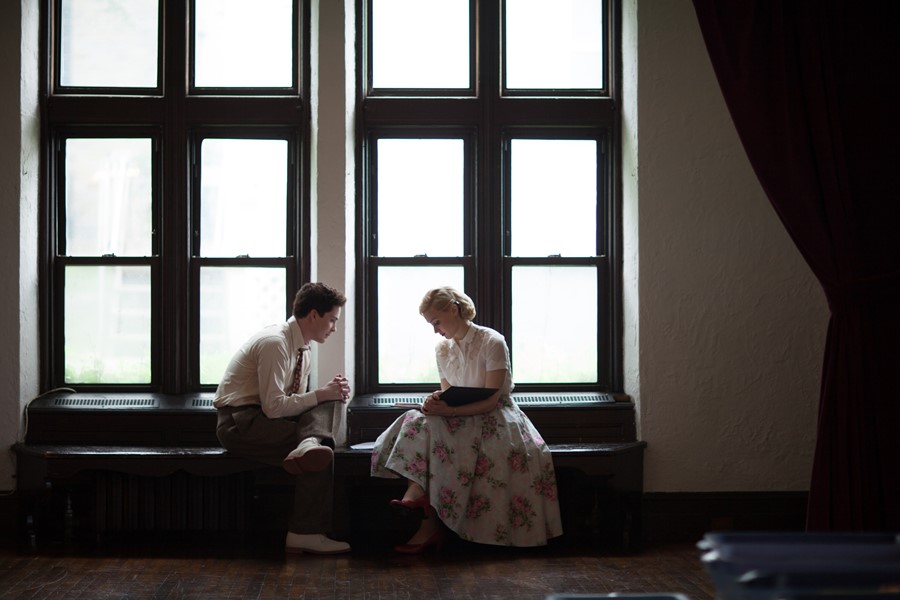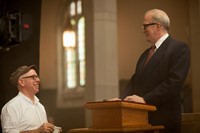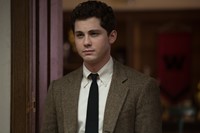As his directorial debut – an adaptation of Philip Roth’s compelling novel Indignation – hits UK screens, we sit down with veteran screenwriter James Schamus to talk brilliant coming-of-age novels and directing tropes
“There are so many accidents in life: sometimes you start off in one direction and then end up somewhere else completely unexpectedly,” says award-winning American screenwriter James Schamus, best known for his multiple collaborations with auteur Ang Lee (think: Lust, Crouching Tiger, Hidden Dragon and The Ice Storm). He is talking about his directorial debut, an adaptation of Philip Roth’s semi-autobiographical novel Indignation, which has just arrived in UK cinemas. “I picked up the book just for fun, because Roth is rightfully thought of as a writer who would not be the first choice for an easy adaptation, but when I finished it, I had fallen in love with the characters; they sustained to me what I thought could be a movie experience,” he expands. Schamus initially began the screenwriting process with Lee in mind to direct, “but he got busy doing super big movies with lots of technology and effects, and those films require approaches and budgets that are probably not appropriate for an intimate, odd, arthouse adaptation!” The next thing he knew, he was fired from his studio job, and, in his own words, thought, “What the heck?”
In spite of its impromptu roots, Indignation is a joyfully accomplished film, both visually and narratively. Set in 1951, against the backdrop of the Korean war, it tells the story of Marcus Messner, an exceptionally intelligent young Jewish man who leaves the clutches of his possessive father and doting mother to embark on college life. Once there, he throws himself wholeheartedly into his studies, shunning any opportunities to enjoy a social life – until, that is, he encounters Olivia Hutton. Hutton (played by a beatific Sarah Gadon) is assertive, beautiful, and deeply troubled, and the naive Messner falls hard and fast, wading into increasingly deep water in the process. Logan Lerman captures the youthful willfulness and unworldliness of Marcus to a T, doing so with just the right dose of wit and charm to keep the audience on side (in perhaps the film’s best scene he has a brilliant showdown with his dean – a wonderfully supercilious Tracey Letts – which involves red-faced quoting of Bertrand Russell in protest of having to attend chapel). Indignation is one of those films whose protagonists and pervasive atmosphere stay with you long after the closing credits, and heralds Schamus, at the age of 57, as a directing talent to watch out for. Here, we sit down with the American industry veteran to talk capturing the colour palette of the 1950s, developing his own directing style, and the essential ingredients of a great coming-of-age novel.
On the adaptation process...
“The thing that makes Philip Roth novels great is the Philip Roth authorial voice. It’s very particular – it’s brilliant, it’s tragically honest, it’s searing and it’s often uncompromising. But the first thing you lose immediately when you translate from page to screen is voice; what you’re left with is characters and actions and dialogue. So what makes Roth great is precisely what you don’t have at your disposal when you’re trying to make a movie from one of his novels, but that’s good – in some ways – because it’s appropriate. Great novels are great novels because they’re great novels, not because they’re great pitches for movies. But in this particular case, the novel is a late one of his and the tone is much more elegiac and fable-like and for me the residue that was left, after you stripped away Philip Roth, turned out to be more than enough for me to try and make a movie.”
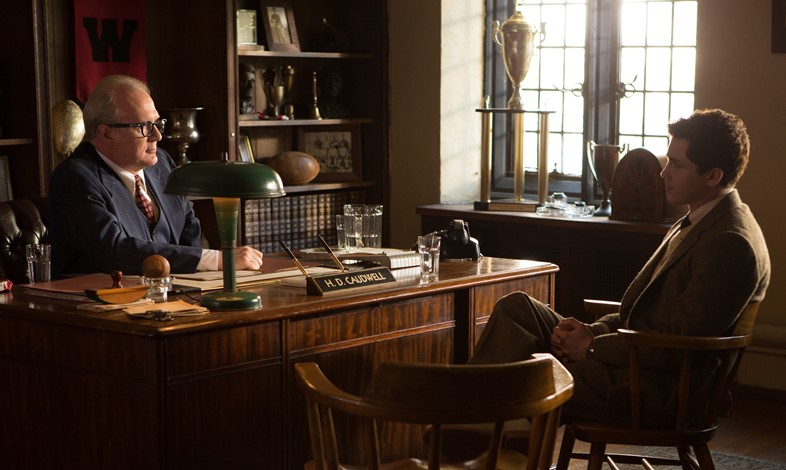
On compiling visual reference books...
“Ang and I started compiling these scrapbooks in earnest with Sense and Sensibility and then The Ice-Storm – we just nerd out with research apparatus basically. And now of course you have the benefit of the digital archive that’s out there and you can create your own, which is what we did on Indignation. With the research tools now, we could unearth things like the movies they made for the reserve officer training corps (the ROTC) at Cornell University in 1951. And the yearbooks from the college that Philip Roth himself went to from 1951; photos of the Jewish fraternity and so on, so you get down to that granular level of detail and it’s really a blast.”
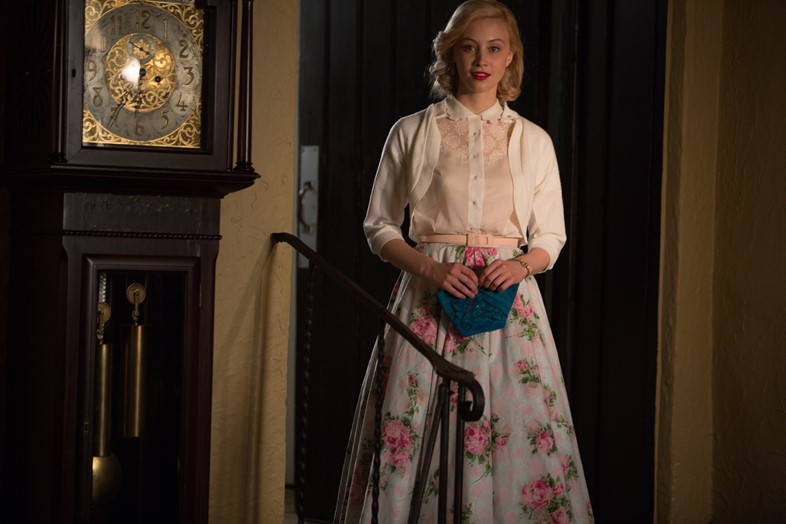
On recreating the colours of the era...
“Another thing that’s important before shooting is feeling your way through what’s important to you and to your team as you’re trying to create and recreate these experiences. So we considered the way in which, if you were a young person in 1951 in America, your family photo album might look, for example. Maybe dad had gotten the colour camera that uses kodachrome. Well kodachrome, and even the chemical bath that was used to create the colour palette for it, has changed over time – most of the colour has now degraded – so we had to go back and recreate what the look and feel of colour memories would be like at that time, as they were mediated through things like photography. Things like the colour temperatures, where they lay on the spectrum, all that kind of stuff. You can become a complete pedant about all this stuff and I’m sure I do most of the time but you hope you’re using it as a tool to really unlock the creativity of your team and to really get your actors to live in the world that you’ve created for them.”
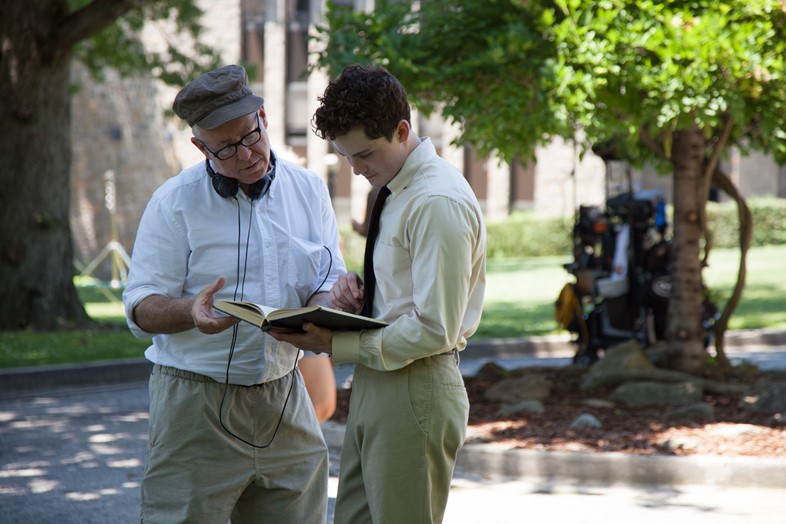
On developing his own directing style...
“Having had the benefit of working with so many different directors over the years, and starting this process as a first-time director at a relatively advanced age, I knew a couple of things. A) I knew that I knew nothing about working with actors, having not had that job before. And B) that I couldn’t just imitate the directors I’d worked with, like Ang or the Coen brothers, because it’s a very personal process and if you try to impose a way of directing on yourself, not knowing who you are as a director yet, you’re going to truly fuck it up. I couldn’t do what Ang does or I’d just make a bad Ang Lee movie! So I was very honest with the actors and we spent a lot of time together in prep – mainly in conversation – so that I could just listen and look and study these people and know what I had to work with and what I didn’t. I needed to follow where they were going a bit and be able to shape it but not try to impose too heavily.”
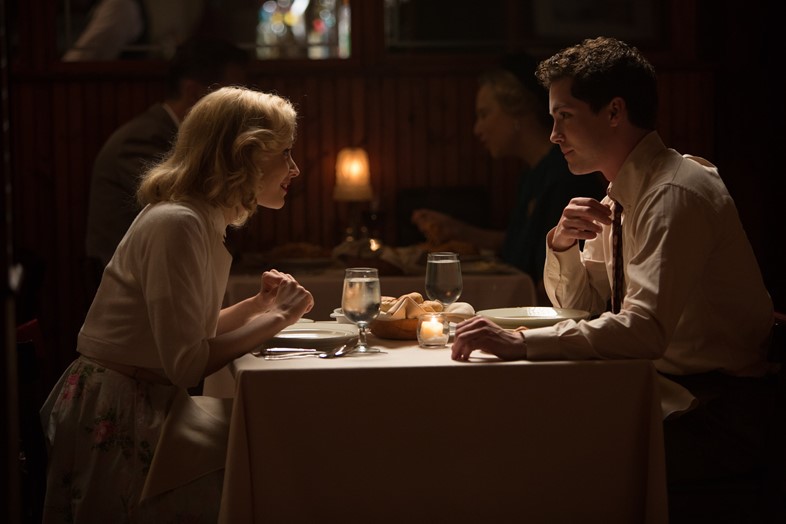
On directing a coming-of age drama...
“For the so-called coming-of-age genre, which is a pigeon hole that I often find very constraining, the great thing from a structural, technical and emotional point of view is that you have both the luxury and the challenge of working with protagonists who, no matter how smart they are – and of course Marcus Messner is a super smart kid – are also profoundly ignorant and stupid. You forget that in fact the great narratives tend to have to, by necessity, incorporate the sinfulness of their own protagonist to achieve the knowledge that enlightens them.
So the challenge for you as a filmmaker, and for the audience, is identifying with a character who is actually, if the drama is really going to be dramatic, completely clueless. That is nowhere more apparent than in Marcus’s relationship with Olivia Hutton. He’s falling in love, they’re definitely the outsiders who find each other – on the one hand. On the other hand, he has no idea what she’s going through and the tragedy of her life. It would be very easy for us to condemn and judge him for the sheer willful ignorance that accompanies a lot of his behaviour in relation to her. So it’s weird that – I hope – by the end of the film you’re not just hating all over the guy.”
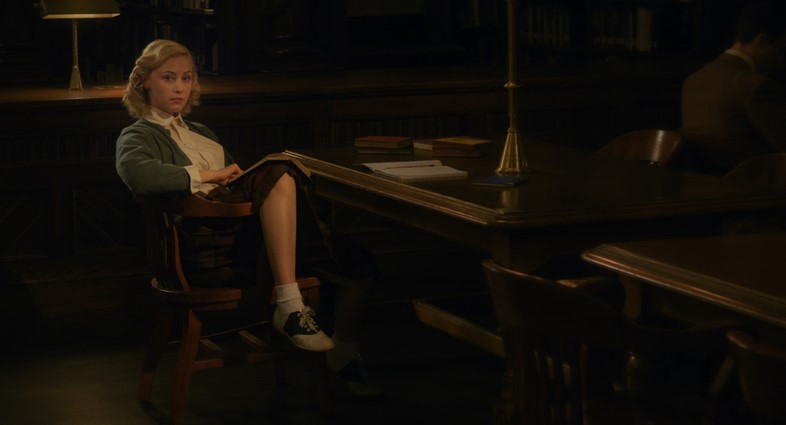
On five other great coming-of-age novels you need to read...
“Henry James’ What Maisie Knew embodies the whole idea of a modern coming-of-age narrative. Maisie is 14 years old and the title of the novel already gives it away: what does she know – about her horrible parents and their divorce, and all this icky, grown-up crap? But that’s not only the title of the novel, it’s the question you still have at the end of the book; it’s just so tragic. Then there’s My Brilliant Friend by Elena Ferrante – if you haven’t caught Ferrante fever yet, you should! These are young characters who truly don’t know, but they know. It’s all unfolding, and it’s wonderful. Huckleberry Finn by Mark Twain is probably the greatest work of American fiction – the book that creates the American idiom in a novel – and again its voice, which is the voice of a kid, is very knowing. There’s Villette by Charlotte Brontë which is super creepy, and semi-autobiographical. The protagonist is another young person in a voyeuristic position, because of course the coming-of-age genre also requires a young person looking and seeing as well as acting. And finally, The Go-Between by L.P. Hartley, a great British book where the child’s character is a kind of conduit between these two lovers – carrying messages, the significance of which he doesn’t really understand.”
Indignation is in cinemas nationwide now.
